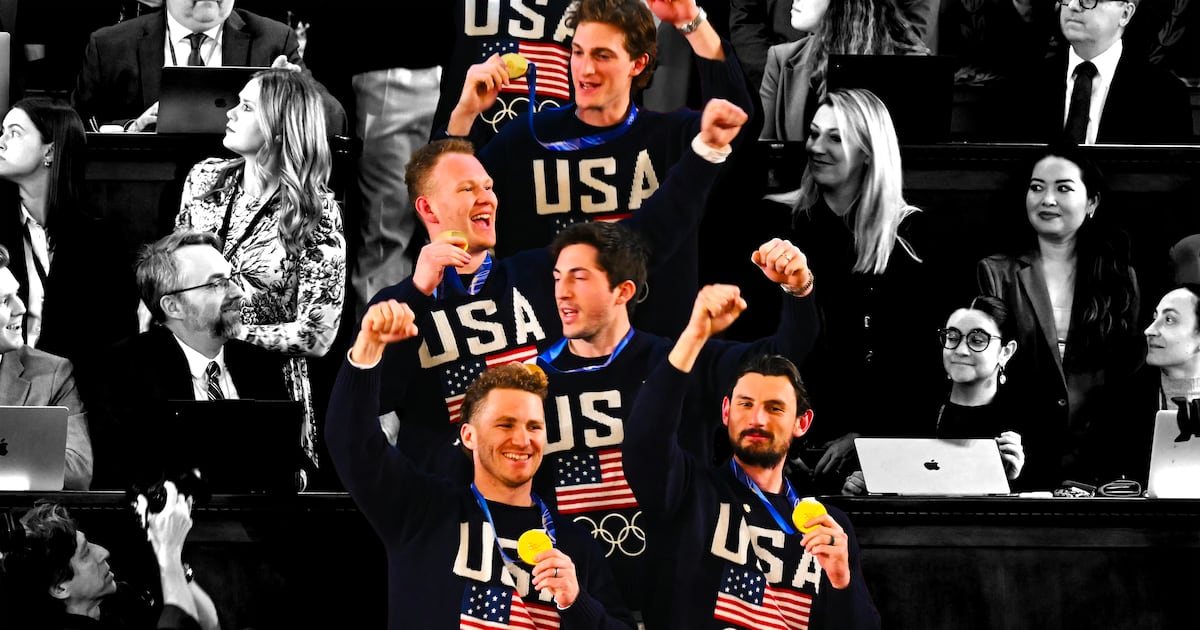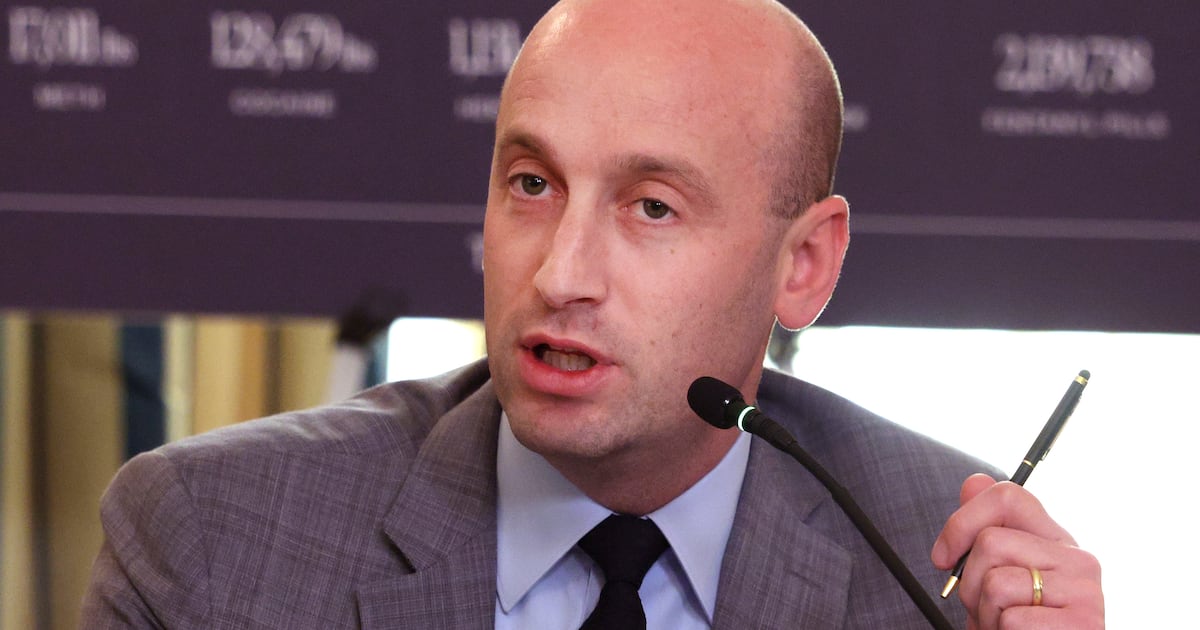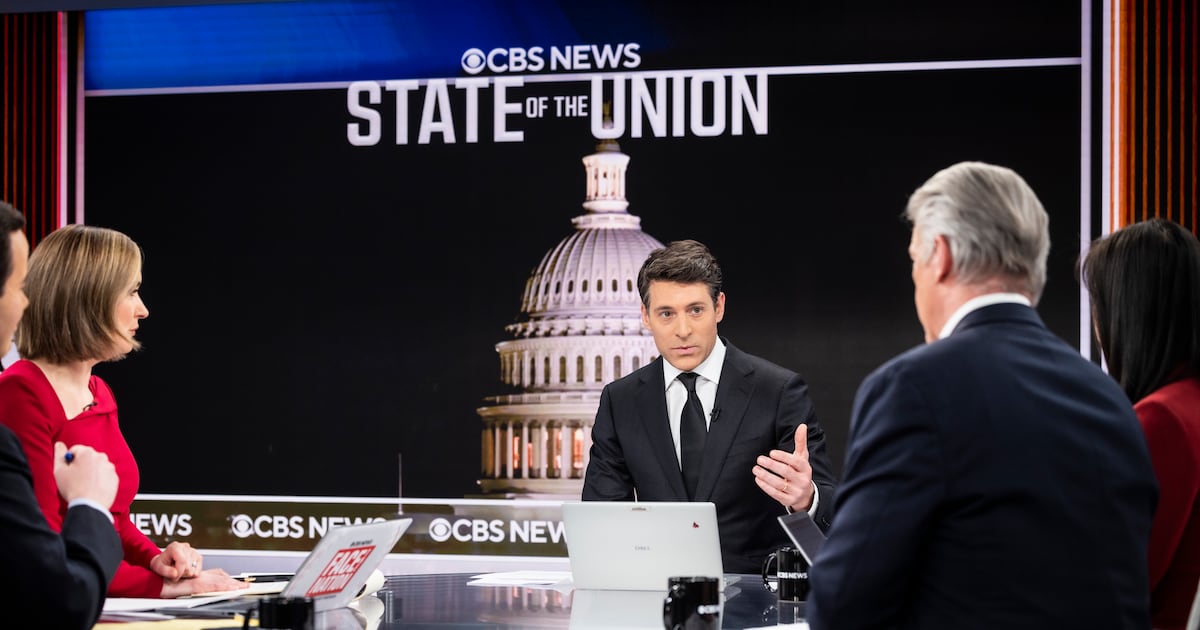On May 17, 2012, Secretary of State Hillary Clinton made a quietly consequential move: She announced that American businesses would soon be able to invest in Burma. The country was just opening to outside influence after years of isolation—and was still ripped by ethnic conflict, with civilians routinely faced rape and other atrocities at the hands of the military.
Clinton and her team said the country’s gradual shift to democracy—Burma had just held an election, won by Nobel laureate Aung San Suu Kyi’s party—meant it had earned the U.S. investment. Other economic powerhouses, including Australia and the EU, were also moving to loosen their own rules for investment in Burma. The U.S. Chamber of Commerce, as the Washington Post reported at the time, said the United States needed to keep up.
But, as the Post also noted, human rights leaders predicted Clinton’s decision would set back their cause. At the time, as Foreign Policy reported, Suu Kyi supported a partial easing of the U.S. investment ban, but didn’t want American companies to be able to invest in the country’s energy sector. They argued opening investment to the energy market would fuel economic inequality and only strengthen the country’s repressive military. And they thought it gave the country’s government too much too soon, giving up leverage to push for more reform in the future.
But the Obama administration broke with Suu Kyi and human rights leaders, letting American companies invest in all sectors—including oil and gas.
Perhaps it’s just a coincidence, but that was exactly what the energy conglomerate Chevron and other generous donors to the Clinton Foundation wanted. Chevron—which has given the foundation between $500,000 and $1 million, according to the Foundation’s disclosures—lobbied the State Department during Clinton’s time there, according to its federal lobbying disclosure filings. Those filings show Burma policy was one of the company’s top focuses. And once Clinton announced the investment ban was lifted, they—and many others—looked to capitalize on the new opening.
Neither the Clinton Campaign nor the Clinton Foundation provided comment for this story.
The Business and Human Rights Resource Centre tracks foreign investment in Myanmar. The Daily Beast cross-referenced their list with Clinton Foundation donors and found that more than two dozen corporations who donated to the foundation have moved to invest in Burma since the investment ban was lifted. The companies are some of the world’s best known: Calvin Klein, General Motors, Boeing, ConocoPhillips, PriceWaterhouseCoopers, Gap, General Electric, Microsoft, PepsiCo, Coca-Cola and Procter & Gamble.
And many of those corporations lobbied the State Department during Clinton’s tenure there, and many are board members of the National Foreign Trade Council, whose project USA*Engage advocated energetically for the roll-back of American sanctions on Burma. Some are also members of the US-ASEAN Business Council, a corporate group that lobbied hard for the sanctions to be eased.
Today, human rights activists argue that those changes benefitted American corporate interests at the expense of reform efforts——and that this is evidence of undue corporate influence on American foreign policy, particularly in the Clinton State Department. American investment opportunities in the country will only grow, as President Obama announced in September that the U.S. will lift sanctions on the country.
Kelley Currie, a former State Department official, said corporate efforts to allow investment in Burma ramped up dramatically in 2010.
“It was stunning, the degree to which they suddenly began engaging in Burma policy processes,” said Currie, now a senior fellow at the Project 2049 Institute think tank.
Currie and human rights leaders—including Juman Kubba of the human rights group Global Witness and Jennifer Quigley, an advisor to the U.S. Campaign for Burma—say the biggest beneficiaries of the Burma shift weren’t the Burmese people, but rather the American corporations who got a brand new investment opportunity. And a 2015 paper from the International Trade Union Confederation argued that foreign investment increased violence and land confiscation in some parts of the country, and had mixed results—at best—for the country’s poor.
In fact, conditions for the Rohingya people have worsened; more than 120,000 Rohingya people have had to flee their homes since June 2012, according to IBTimes, and human rights groups say they face ethnic cleansing——and that the country’s government is complicit in their persecution. The most recent report on Burma from Human Rights Watch found that the military still recruits child soldiers and that efforts to make it submit to civilian control have stalled or reversed. Despite this, American companies have investment access to the country——including the freedom to make investments that strengthen its military.
State-sponsored violence, especially directed at ethnic minorities, has long torn Burma. The country’s brutal military regime, called the Tatmadaw, used rape as a weapon of war against ethnic minority women and young girls. The military still does so in some parts of the country, as Priscilla Clapp, chief of mission and permanent chargé d’affaires at America’s embassy in Burma from 1999 to 2002, told The Daily Beast in June.
The U.S. put a variety of economic sanctions on Burma from 1990 onward to limit the Tatmadaw’s power, as the Congressional Research Service has detailed. These sanctions were designed to incentivize political reform and reduce human rights abuses. In 2010, as Currie noted, U.S. business groups started pushing the State Department to loosen these restrictions.
Those companies included Chevron, which has long had a presence in Burma through a subsidiary, even before the lifting of the investment ban. In addition to the sums it gave the Clinton foundation, it also lobbied the State Department in the lead-up to the lifting of the ban, as disclosures available from the Center for Responsive Politics show. And the human rights group United to End Genocide noted that the company’s federal lobbying disclosures mentioned Burma 23 times in 2011, when corporate efforts to allow investment there were taking off. The corporation is a board member of the National Foreign Trade Council.
In 2014, Chevron announced in a press release that it acquired exploration rights for offshore drilling in Burma’s Rakhine Basin. On March 24, 2015, it announced it is working with the country’s national oil company, Myanmar Oil & Gas Exploration (MOGE). Chevron’s website says these explorations are currently underway. And Currie said this set-up may benefit Burma’s repressive military.
“For the past 20 years, Chevron and its predecessor Unocal have been providing valuable hard currency to the Burmese military, by partnering with MOGE,” Currie said.
She added that in the past, that partnership didn’t benefit the Burmese people, and that today it isn’t clear if MOGE’s revenues boost the civilian government or the repressive military.
A Chevron spokesperson said she does not think the company’s contributions to the Clinton Foundation influenced its ability to invest in Burma.
“There is no connection between our contributions to the Clinton Global Initiative and Chevron’s engagements with the US State Department on appropriate business matters,” said Chevron spokesperson Melissa Ritchie. “The Clinton Global Initiative was one of the many partnerships and programs that the company has had or maintains to advance our aim to build communities by investing in health, education and economic development in the areas where we do business.”
“Chevron has made contributions to the Clinton Global Initiative——which the organization itself disclosed——to raise awareness of Chevron’s key social investment focus areas, such as preventing the spread of HIV/AIDS, education and workforce development,” she continued. “The total amount of Chevron’s contributions to the organization over a nine-year period is $725,000. Over the same period of time, Chevron has contributed approximately $1.8 billion in social investments to local communities, and in 2014 alone we spent approximately $233 million on global social investments.”
Ritchie added that Chevron complies with all State Department reporting requirements regarding its partnership with MOGE and its exploration in the Rakhine Basin.
“We comply with all laws and regulations in the locations where we do business,” she said.
Coca-Cola is another generous Clinton Foundation donor that has moved into Burma. It’s given the foundation between $5 and $10 million, and filed an investor’s report to the State Department in December of 2013. In June of 2013, the company’s CEO celebrated the opening of the first Coca-Cola bottling plant in Burma in 60 years. In a report filed to the State Department in June of 2015, the company expressed concerns about the country’s child labor problem. Coca-Cola is also a board member of the National Foreign Trade Council.
In a speech on November 17, 2012, Hillary Clinton mentioned a trade mission to Burma and then praised a few American businesses that later set up shop there.
“We’re proud to go to bat for the Boeings and Chevrons and General Motors and so many others,” she said.
All three of those businesses gave to the Clinton Foundation——between $1.5 million and $6.1 million between the three of them. All three have also moved to invest in Burma (General Motors recently opened a showroom there). And all three lobbied the State Department during Clinton’s time there.
Bill Clinton, through the Foundation, offered to help expedite foreign investment in Burma. In an email on Sept. 26, 2012, Clinton Foundation foreign policy advisor Amitabh Desai told Jake Sullivan——then a State Department official——that Bill Clinton told the country’s president he would be willing to bring an investor delegation to the country. An aide to Bill Clinton said he did not end up bringing an investor delegation there and didn’t offer further detail on how the former president made that decision.
The Chamber of Commerce, also a foundation donor, pushed hard to lift the investment ban. The US-ASEAN Business Council also advocated for the change, according to Quigley.
“Those two lobbying arms of the business community here were very aggressive in pushing the State Department to lift the sanctions,” Quigley said.
Lobbying disclosure forms accessed through the Center for Responsive Politics show that the Chamber lobbied the State Department in 2010. The Chamber is a Clinton Foundation donor. According to the Foundation’s disclosures, which the Washington Post helpfully made searchable, the Chamber has given the foundation between $10,000 and $25,000.
A spokesperson for the Chamber downplayed their lobbying efforts.
“I’m not sure who would say the move in 2012 was the result of the Chamber’s efforts, but the U.S. Chamber did support lifting the investment ban and has encouraged the ongoing reform measures in Myanmar,” the spokesperson said. “U.S. companies bring high standards and can play a beneficial role in providing good jobs and a stable business environment.”
So the Chamber got what it wanted. On May 17, 2012, Hillary Clinton announced the U.S. would roll back the ban that kept American companies from investing in Burma. As the Washington Post reported, human rights groups immediately criticized the move——in large part because it allowed investments that they believed would only strengthen the military.
Quigley said human rights advocates were “extremely angry” about it, and thought it did too little to help civilians, particularly marginalized ethnic groups facing killings and rape.
Kubba said she was perplexed by the decision to lift the investment ban.
“There was no good reason for that,” she said. “I don’t understand why you would do that if you’re trying to help the country. What’s going on, is it the corporate influence, where is this all coming from?”
Quigley said she believes Clinton’s decision is evidence of undue corporate influence at the State Department.
“It was to open this environment up to them,” she said, referring to corporate investors who benefitted from the move. “That was the big success.”
Human rights activists argue that investors like these companies have been among the biggest beneficiaries of the opening to Burma, and that activists have lost power since it happened.
“You don’t have an end to the conflict,” said Quigley. “You don’t have civilian control of the military. You don’t have national reconciliation. And the economy is structured exactly the same, with the same handful of oligarchs that benefit from it.”
And those concessions mean the Burmese government had less of an incentive to keep reforming.
“The United States business community has been among the biggest beneficiaries of sanctions relief on Burma,” said Currie. “Meanwhile, the human rights community has lost important leverage in pressing for greater reforms in Burma.”
In other words, she said, the U.S. gave the Burmese government too much too soon with too little in return.
A State Department official said they are pleased with the Burmese government’s reform efforts.
“The new government faces a wide array of challenges, but there has been important progress so far,” said the official, who spoke anonymously. “We commend the new government’s demonstrated commitment to human rights, and look forward to support the government’s efforts to further the democratic transition, advance peace and national reconciliation, and promote economic development and growth.”
That view is far from universal. And some argue that increased foreign investment in Burma has in some ways made the human rights situation worse. A paper from the International Trade Union Confederation published in October of 2015 concluded that foreign investment could exacerbate inequality and abuse. That report also noted that underage labor is still common in the country, including in the oil and mining industries——industries which have attracted Western investment. It added that Western clothing companies planning to source their materials from Burma risk inadvertently hiring workers under the age of 18. H&M, for instance, recently cracked down on two of its factories there that allegedly hired 14-year-olds to work 12-hour days, as The Guardian reported.
The reputational harm that comes from hiring kids isn’t the only risk for Western investors.
“There are serious risks that Myanmar’s natural resources and labor will only benefit privileged domestic interests and foreign companies, while disadvantaged communities will suffer the negative impacts of poorly regulated business activities,” the paper reads.
The paper also noted that conditions have worsened for the Rohingya minority and the increased foreign investment “is intensifying land confiscation and violence.”
And Foreign Policy noted in 2014, the country’s military faces allegations of ethnic cleansing of the Rohingya minority.
Kubba said Burma should be a dark spot on Clinton’s State Department legacy.
“This whole issue really could come back to bite her,” she said, “and, more significantly, the democracy movement in Burma.”
Not everyone shares that perspective, including Tommy Vietor, a Clinton supporter and former National Security Council spokesperson.
“I do believe with 100 percent certainty that not a single voter will make their decision based on her policy towards Burma,” Vietor told Foreign Policy in 2014. “You’ll be lucky if they know where the fuck it is.”






